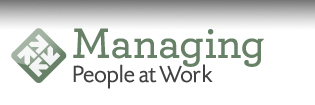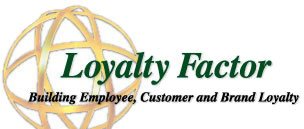Corporations can work five times harder and spend five times more money to gain new customers, or they can keep the ones they have.
Managing People at Work - Become a Magnetic Leader

Become a Magnetic Leader
By Beth Braccio Hering
Featured in Managing People at Work May 2013
Effective leaders create inviting workplaces filled with engaged, enthusiastic employees. Such an atmosphere, however, does not happen without effort. Dianne Durkin, president of Loyalty Factor, a consulting and training company in Portsmouth, NH, draws upon her decades of experience changing the leadership course of major corporations to provide insight in her book, The Power of Magnetic Leadership. Here, she discusses one of the most important components in becoming a magnetic leader- knowing yourself.
MPAW: How can a manager pinpoint what type of leader he or she is, and why is it important to know?
Durkin: There are basically four categories that people can fall into:
- The very driven, competitive and bottom-line-oriented leader
- The extremely creative, innovative and charismatic leader who tends to inspire and motivate
- A very caring, giving, loyal and team-oriented leader
- An exacting, analytical and structured leader
Although leaders have a little bit of all these characteristics, they usually have a primary and a secondary style. Every person is an individual, and magnetic leaders know how to flex their style to work effectively with individual differences. By knowing our styles and being able to flex them, we can connect and build rapport and trust.
MPAW: Explain what a leadership log is and why a manager should keep one.
Durkin: A leadership log is designed to change behavior. Studies have shown that behavior changes happen after 21 days of continual practice. The leadership log is a 21-day record of behaviors. By documenting the behaviors, changes occur. Typical questions that should be answered in a leadership log include:
1. How did I flex my style today?
2. What leadership traits did I exhibit today?
3. How did I build my trust bank with individuals today?
By answering these three simple questions, leaders will see positive behavioral changes.



